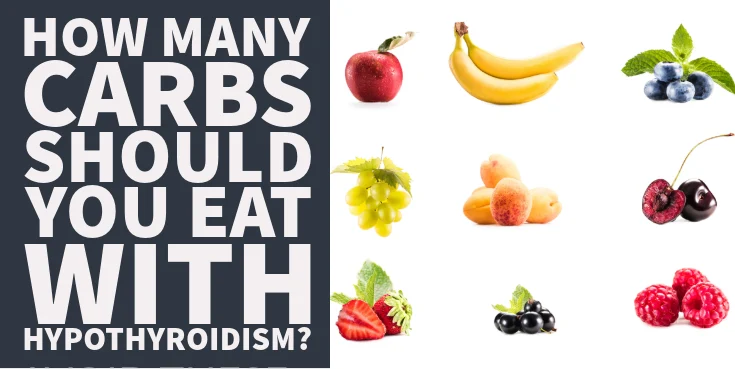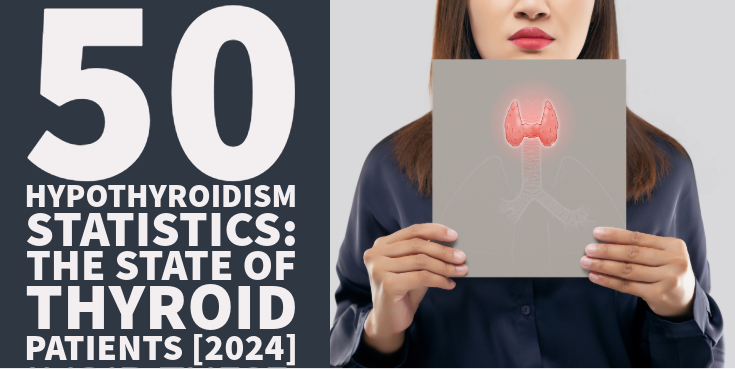Checking your total T3 and free T3 may be the most important thyroid tests you can look at.
Unfortunately, many physicians aren’t even ordering these tests which may lead to a missed diagnosis of low T3 syndrome.
Fortunately, there are several therapies that you can do to increase this important thyroid hormone and take steps to reduce your symptoms.
If you are experiencing weight gain, chronic fatigue, chronic pain or a slow metabolism then increasing your T3 becomes even more important.
Let’s discuss how to increase these levels and how T3 impacts weight and weight loss…
Why T3 is the Most Important Thyroid Hormone
T3 thyroid hormone is one of the most important thyroid hormones (we will go over the other arguably more important hormone below).
T3 is the active form of thyroid hormone in your body.
It can be measured by testing your total T3 in the serum and by assessing your free T3 levels.
The total amount of T3 in your body represents all of the T3 in your serum (blood), and the free T3 represents the amount of T3 available to be used and for binding.
You can think of total T3 as a reservoir for free T3, but both numbers are important.
But why?
It turns out that all of the beneficial effects of thyroid hormone in your body come from T3 (NOT T4 thyroid hormone).
T3 thyroid hormone acts directly on the nucleus of your cells via a nuclear receptor to literally turn on your genes (1) and alter genetic transcription.
This is very important because it can help you understand exactly how thyroid hormone works in the body.
The fact that thyroid hormone works on the nucleus of the cell helps to explain why it takes weeks for changes in thyroid hormone to take effect.
Altering genetic transcription, altering enzyme production, and changing cellular transcription takes time.
These changes in genetic transcription help increase energy, increase metabolism (2), stabilize hair growth (3), and do all of the functions associated with proper thyroid hormone function.
- Bottom line: T3 thyroid hormone does all of the good things that you want thyroid hormone to do. It is the most important thyroid hormone to monitor for this reason.
DOWNLOAD FREE RESOURCES
Foods to Avoid if you Have Thyroid Problems:
I’ve found that these 10 foods cause the most problems for thyroid patients. Learn which foods you should avoid if you have thyroid disease of any type.
The Complete List of Thyroid Lab tests:
The list includes optimal ranges, normal ranges, and the complete list of tests you need to diagnose and manage thyroid disease correctly!
Understanding the Difference Between T4 & T3
The biggest issue with T3 is that most doctors, physicians, and endocrinologists don’t actually test for it.
And that’s why you need to understand the difference between T4 and T3.
You’re probably familiar with T4 whether you realize it or not:
Some physicians actually test for T4 (so you may actually have your free T4 levels to look at).
Even if your doctor doesn’t test for T4 and instead uses the TSH only for monitoring your thyroid function, you are probably being treated with a T4-only thyroid medication like levothyroxine, Synthroid, or Levoxyl.
And that’s the problem:
T4 is used in the body as a reservoir to be turned into T3 through a conversion process known as T4 to T3 conversion.
So why is that a big deal?
Doctors make one big mistake when treating and supplementing hypothyroid patients with T4-only medications:
They assume that your body will take all of that T4 thyroid hormone and turn it straight into T3.
And, as you can probably guess, that doesn’t always happen.
Instead, your body is just as likely to turn it into the antithyroid metabolite reverse T3.
Reverse T3 directly competes for cellular binding with T3 and can actually cause hypothyroid symptoms.
So when testing for thyroid hormone and when evaluating if you are being managed correctly it’s far more useful to know your T3 levels instead of your T4 levels.
Make sense?
Why Low T3 Leads to Weight Gain
One of the biggest issues that hypothyroid patients face is weight gain.
Part of this problem is mediated by the fact that many patients don’t actually convert T4 to T3 efficiently, and the other part is the reliance upon TSH as a measure of proper thyroid hormone in the body.
The truth is that most patients don’t actually convert thyroid hormone efficiently AND TSH is not the best marker for evaluating thyroid function in the body.
These problems, along with low T3 levels, help contribute to the weight gain and weight loss resistance that many hypothyroid patients face and struggle with.
The reason T3 is so important for proper weight management is simple:
T3 is one of the most powerful, if not the most powerful, mediators of energy production from your mitochondria.

The energy production from your mitochondria serves two very important functions:
1. Help determine your basal metabolic rate.
2. Help provide you with a subjective sense of “energy”.
That means that low levels of T3 will directly (or indirectly) result in a slower-than-normal metabolism (sound familiar?) and may result in the symptoms of fatigue and/or low energy levels.
Obviously, both of these factors are very important for maintaining a normal and healthy weight, but they are most important for losing weight.
Your metabolism accounts for the majority of calories burned throughout the entire day, so a slower metabolism results in weight gain.
Meanwhile, low energy levels may prohibit you from being able to exercise making weight loss difficult.
So what is the solution?
How to Test your T3 Levels
For the reasons listed above (and many others we won’t be discussing) testing for your T3 becomes a VERY important part of thyroid management.
I need to take a second and make a disclaimer here:
If you have to ask your Doctor for these tests there is a good chance they are NOT going to understand how to interpret them correctly.
So don’t assume that you will get proper treatment for your thyroid problems just by getting these tests done, the testing is really only the beginning.
What matters more than the actual tests is the treatment and management afterward.
So, while testing is important, don’t make the mistake of assuming that your physician or provider will be willing to treat you appropriately once you have the results.
Ok, back to testing:
These are probably the most important thyroid tests to get if you want to understand how your thyroid is functioning in your body:
- Total T3
- Free T3
- Reverse T3
- Sex hormone-binding globulin
You will probably notice that TSH and free T4 don’t even make an appearance, and that is definitely intentional.
TSH really only gives you an idea of pituitary levels of thyroid hormone and T4 is only somewhat helpful in evaluating thyroid conversion.
Instead, I want you to focus on getting the labs listed above and then interpreting the results based on “optimal” levels and not “normal” levels.
When it comes to hormones there is a huge difference between being in the “normal” range and having an adequate function and being optimal.
For instance:
As a 20 to 40-year-old woman, you don’t want your free T3 levels to be in the range of an 80-year-old.
Use the sample ranges below to determine if your levels are optimal or not.
Optimal ranges for the following lab tests (assuming you aren’t taking T3 containing thyroid hormone already):
- Total T3: Should be in the upper half of the reference range
- Free T3: Should be in the upper half of the reference range
- Reverse T3: Should be as low as possible, any number higher than 15 is a problem
- Sex hormone binding globulin: In men, this should be 20-30 and in women, it should be 70-80 (this value isn’t helpful if you are taking oral estrogen or birth control pills)
These values assume that you are NOT taking any thyroid medication (if you are, you can’t use those ranges) and it assumes that you also are experiencing the symptoms of hypothyroidism.
I want to take a second and point out the value of sex hormone-binding globulin:
SHBG helps give you an idea of the tissue levels of thyroid hormone in your liver.
As an aside, you can think of TSH as a marker of tissue levels of thyroid hormone in your pituitary.
The liver is a better marker of other tissues in your body because it contains both deiodinases.
The pituitary doesn’t contain the deiodinase which transforms T4 into reverse T3, which means that all thyroid hormones hitting the pituitary will be able to convert just fine.
But that same thing may not be true in other tissues, and that’s why SHBG is helpful.
Low T3 Syndrome & Euthyroid Sick Syndrome
Let’s say that you have your tests in front of you and you have determined that you do indeed have low T3.
It turns out that there is actually a name for your condition:
It’s known as low T3 syndrome and/or euthyroid sick syndrome.
Almost every doctor knows this condition, but they’ve probably forgotten about it over time (or don’t realize its importance outside of the hospital).
The reason is simple:
Low T3 is a compensatory response to harmful stimuli in the body.
We can sum it up like this:
Anything in your body that causes high levels of stress, high levels of inflammation, physical/emotional trauma, or any other stressor on the body may result in this condition.
Another surprising reason for low T3 is simply being overweight.
Patients who are obese have lower levels of free T3 (4) and higher levels of reverse T3.
Medications can also reduce the conversion of T4 to T3 including blood pressure medications, diabetic medications, pain-blocking medications, antidepressants, and nerve modulators (gabapentin & Lyrica, etc.).
When you look at all of the potential causes of low T3 that exist, it’s easy to see why this condition is becoming more and more common.
Nowadays it’s not uncommon for people to be overweight, stressed out, and already taking multiple medications.
I should also take a second to discuss that one of the most common causes of low T3 is calorie restriction and a history of yo-yo dieting (5).
If you’ve ever done these types of diets in the past there is a very good chance that you not only have damaged your metabolism but that you also have low levels of T3.
If you fall into this category don’t worry, we are going to talk about treatment below:
Symptoms of Low T3
But first, we need to talk about the symptoms of low T3.
If you recall I pointed out earlier that you need the combination of symptoms PLUS low lab values to diagnose low T3 syndrome.
Use this list of symptoms in conjunction with your lab tests to determine if you have low T3:
- Cold body temperature & extremities(less than 98.0 degrees)
- Low resting heart rate despite being overweight and non-conditioned(resting heart rate less than 50-60)
- Weight gain and/or weight loss resistance
- Decreased energy levels and inability to sustain activity levels for long periods of time(even low-intensity exercises like walking cause worsening fatigue)
- Other hormonal problems including estrogen dominance, low progesterone levels, insulin resistance, and/or leptin resistance
- Chronic pain and/or chronic muscle tension/cramps
- Hair loss, hair breakage, dry skin, and/or brittle/damaged nails
As you may have noticed this list mimics many of the symptoms with some exceptions…
Many of these symptoms result from a lower-than-normal metabolism and may directly or indirectly lead to weight gain and weight loss resistance.
In addition to these symptoms, you may experience any (or all) of the traditional symptoms of hypothyroidism.
It’s important to note that the symptoms of low T3 may vary from person to person, but the list above represents the most common symptoms that patients may experience.
Use the list above in combination with your lab tests to determine if you should move on to the next step…
Natural Treatment to Increase T3 Levels
I’m going to go over how to approach low T3 levels and what you can do about it.
This is really important because, as I mentioned previously, most physicians don’t pay much attention to T3 levels.
This means that they aren’t likely to change your medication, increase your dose, or even mention these lab tests, to begin with.
It’s therefore important that you are knowledgeable and do whatever you can to increase your T3 naturally.
I will also go over how to increase your T3 the easy way (taking T3 medication) below.
#1. Boost Conversion of T4 to T3
One of the easiest ways to boost T4 to T3 conversion is by taking targeted supplements to help boost this natural conversion process.
It turns out that there are several supplements that can help accomplish this goal:
- Zinc: Zinc has been shown to increase T4 to T3 conversion, act as a powerful anti-inflammatory and reduce oxidative stress. Zinc is also a VERY common nutrient deficiency in the US. Standard zinc supplements also fall short because they don’t contain highly absorbable formulations of zinc (6)). Doses of 30-60mg per day can help boost thyroid conversion if taken with selenium.
- Selenium: Selenium can also improve T4 to T3 conversion, act as an anti-inflammatory and help balance the immune system. Selenium is also very helpful for patients with autoimmune thyroiditis or Hashimoto’s thyroiditis. Taking 200-400mcg per day (when accompanied by zinc) can help boost thyroid function and conversion.
#2. Reduce Reverse T3 Levels
Another indirect way of increasing the effectiveness of T3 levels in the body is by reducing your reverse T3 levels.
Recall that reverse T3 directly competes for cellular binding with T3 levels.
This means the higher the reverse T3 the more free T3 you need to counteract the reverse T3.
By decreasing reverse T3 levels you don’t necessarily need to increase T3 levels because it will be easier for the T3 to do its job.
Make sense?
So how do we do it?
You have to tackle the main problems that might be causing high reverse T3 levels to begin with.
Use the list below and address any or all of the problems in your body to reduce your reverse T3 levels:
- Lower inflammation: Inflammation from any cause will increase reverse T3 levels and result in decreased thyroid function. You can test for inflammation by checking ESR and CRP. If these are elevated then you should consider taking anti-inflammatory supplements like Turmeric, fish oil, and quercetin plus bromelain.
- Treat SIBO or other GI-related problems: Treating your GI tract is very important for managing thyroid conversion because the gut is the place of at least 20% of the conversion process. This is further complicated by the fact that many conditions like SIBO, IBS, GERD, and SIFO reduce conversion by increasing inflammation and reducing the conversion efficiency in the gut. Approximately 50% of thyroid patients have concurrent SIBO/SIFO whether they realize it or not, you can learn more about treating and managing SIBO here.
- Lower insulin: High insulin levels (and also high blood sugar levels) inhibit the T4 to T3 conversion process and contribute to weight gain. If your fasting insulin is greater than 5.0 you should aggressively treat and manage your levels with supplements + dietary changes. If you have insulin resistance (or high blood sugar) consider using the following supplements: Alpha lipoic acid, Berberine, and chromium.
- Lower leptin levels: Leptin is another hormone that contributes aggressively to weight loss resistance and is missed by most physicians who either don’t know how to treat it or don’t understand its importance in managing thyroid levels and managing weight loss. I’ve written extensively about how to test for and manage leptin resistance and you can read more about that here.
- Stop dieting and consciously limiting your calories: If you are consuming less than 1,500 calories per day just to maintain your weight you are damaging your metabolism and contributing to low T3 syndrome. In order to heal your metabolism, it will be necessary to STOP consciously reducing your calories to halt and reverse this process.
Reducing reverse T3 levels can be quite complex and may require some digging to get to the bottom of your specific problem.
#3. Increase Thyroid Hormone Production
Another roundabout way to increase T3 levels indirectly is by increasing your total thyroid hormone production.
This doesn’t always work by itself, but if used with techniques designed to both boost T4 to T3 conversion AND reduce reverse T3 levels it can be particularly effective.
It turns out that over 10 different supplements are required for proper thyroid hormone production.
If you are deficient in any of these nutrients then you may suffer from decreased thyroid hormone production over time leading to worsening symptoms of hypothyroidism.
You can find the full list of supplements required in this post as well as how to test for and determine which supplements you may need to take.
T3 Thyroid Medication Therapy
Now let’s talk about the easy way to increase T3 (well relatively easy way).
Simply taking T3 can automatically provide a boost to your T3 levels and significantly (and usually quickly) reduce any symptoms you may be having from low T3.
We touched on medications previously, so it’s worth discussing them a little bit more in detail.
Part of the reason that so many patients feel terrible despite taking thyroid medication has to do with the conversion process of T4 to T3.
You already know that most physicians prescribe T4-only medications like Synthroid, levothyroxine, and Levoxyl.
What you may not realize is that these T4-only thyroid medications may be converted into reverse T3 instead of the T3 you want it to turn into.
So, in some cases, you might actually be making your symptoms worse by taking thyroid medication.
In some cases, you may be fueling the fire by providing your body with more substrate to produce reverse T3 with.
So how do you deal with this problem?
This problem can be dealt with by reducing (or eliminating) the amount of T4 hormone you are taking and instead providing your body with T3-only thyroid medication.
If you give your body direct T3 there isn’t any substrate to produce reverse T3 from so these levels will automatically drop.
Getting your physician to prescribe T3-only medication can be difficult, however, so this may not work for everyone – but if possible it’s certainly worth a try.
Better yet, combining all of the natural therapies listed above with T3-only thyroid medication is very effective.
NDT vs Liothyronine/Cytomel for Low T3
What about natural desiccated thyroid hormone, where does NDT fit into all of this?
As you may know, NDT is predominately a T4 thyroid medication, but it does contain some T3 in it as well.
The ratio is in favor of T4 about 3:1, however, which means that NDT can also contribute to reverse T3 production.
In some cases dropping the total dose of NDT may be required to flush out reverse T3.
In addition, some patients do quite well with the combination of NDT + T3 medication.
Recap & Final Thoughts
Having low T3 is a serious problem that tends to be ignored or underappreciated by most physicians.
Because T3 thyroid hormone is the active thyroid hormone in your body, it is the most important thyroid hormone to evaluate.
If you are experiencing any of the symptoms of low T3 syndrome or euthyroid sick syndrome make sure that you get the following lab tests: free T3, total T3, reverse T3, and sex hormone binding globulin.
If you find that you have low T3 then a combination of natural treatments plus changing your thyroid medication may be in order.
Remember that when it comes to improving your thyroid function it will likely require a combination of therapies to achieve the best results.
Now it’s your turn:
Do you have low T3?
What have you done to increase your T3 levels?
What has worked for you?
Leave your comment below and I will personally respond.








